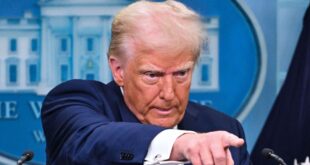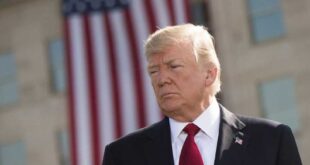The United States is facing the worst economic crisis in our lifetime. So far, we have taken major steps to ‘band-aid’ the most urgent and short-term financial struggles with stimulus relief packages, enhanced unemployment and trillions of dollars deployed to aid both small business and major corporations alike. While necessary, these interventions will not return us back to our pre-pandemic normal or provide a path for long-term economic recovery.
So what is the long-term approach for America and other nations around the world to rebuild their economies? The answer is free, fair and open trade coupled with increased international cooperation. And we can only achieve this through sweeping, structural transformations within our governments and multilateral global trade institutions. International trade plays an increasingly important role in many domains, including jobs, the environment and the fight against poverty. But for trade to be effective in the global economic recovery, it’s primary aim should not be to be fair.The trade which is perceived as the most unfair creates the most benefits because the potential yields are the largest. One of the constructs in economics is the theory of absolute and comparative advantage. This theory refers to a country’s ability to produce goods and services at a lower cost basis than other nations with whom they trade. In the context of international trade, allowing nations to specialize in different goods and services makes all nations participating in trade better off.
According to Bloomberg and the International Monetary Fund, “the U.S. is expected to account for 31% of this year’s decline in worldwide gross domestic product. That is more than twice than America’s share of global output annually.” They also predict the entire global economy will shrink by 3% in 2020, and that this figure will contract to 6% in 2021. As the world faces an economic ‘shrinking of the pie,’ we need to focus on policies which promote free and open trade which might have negative short-term political implications, but in the long run will return the GDP back to pre- COVID levels.
How can America, as a global leader, ensure that its economy returns to pre- pandemic levels while also maintaining economic security within some of our major trading partners and allies? Multilateral cooperation coupled with a commitment to a rules-based global trading system will be vital to the health of the global recovery.
There is hope for heightened international cooperation to promote a multilateral response. However, the signals being sent by major world capitals indicate we are headed towards increased global fragmentation. For the time being, the main forum for international cooperation and coordination on these issues have been the G20. The G20 has been clear on what the trade response to the pandemic should look like – that trade measures should be “targeted, proportionate, transparent and temporary.” But the G20 does not have the ability to regulate, and this is a role for the World Trade Organization. I recently had the privilege to chair a briefing with Ambassador Alan Wolff, Deputy Director General for the WTO and the Meridian Corporate Council, an alliance of the world’s leading companies that believe that global engagement is vital to economic prosperity. Amb. Wolff, in subsequent public comments, has recently outlined the three phases of response needed now by the multilateral trading system: first, addressing the measures nations should put into place to deal with the global health crisis; second, cooperation to support the economic recovery from the current depredation, and third assuring that the multilateral trading system is more effective and resilient in shaping the future global economic growth.
Coordinated policy efforts like these amongst major trading nations are needed now more than ever. We must utilize the multilateral tools we have and think about new ways to increase this global cooperation for future crises. In order for any country to benefit, we must look at ways domestic economic policies through the lens of how they affect trade flows for the rest of the world.
During the upcoming meeting of the G7, we can anticipate that the fate of Hong Kong, Russia’s re-entry and WHO reforms will factor heavily into the discussions. However, the main focus should be on coordinating policy as to help each one of our major trading partners overcome the economic realities their countries are facing. The G7 is a perfect setting for building consensus around what the coordinated policy response should be, and ways in which the G7 can work with the broader G20 on building a partnership to vanquish a common foe.
Without coordinated policy responses, each country will continue to act in its own self-interest and global growth will be dampened by reactionary trade sanctions.
By not coordinating or leading, especially when it is the US turn to Chair the G7 in 2020, we are only dooming ourselves to slower global growth (and decreased demand for US goods) in the years ahead. Proper coordination at the G7 could result in fast growth for all of the world’s major economies and implementing a framework for this policy coordination would be a noteworthy achievement for US diplomacy during this pandemic.
The global economic order, which America helped shape in the post-World War II era, is designed to foster the kind of multilateral cooperation needed to tackle this crisis. Through this crisis, America has another opportunity to lead and shape the global economic order for another generation. Having strong economic partners will help America emerge from this crisis faster and more resilient than when we entered, and will lead a path to a more resilient, globally engaged, secure and economically prosperous nation.
 Geostrategic Media Political Commentary, Analysis, Security, Defense
Geostrategic Media Political Commentary, Analysis, Security, Defense





